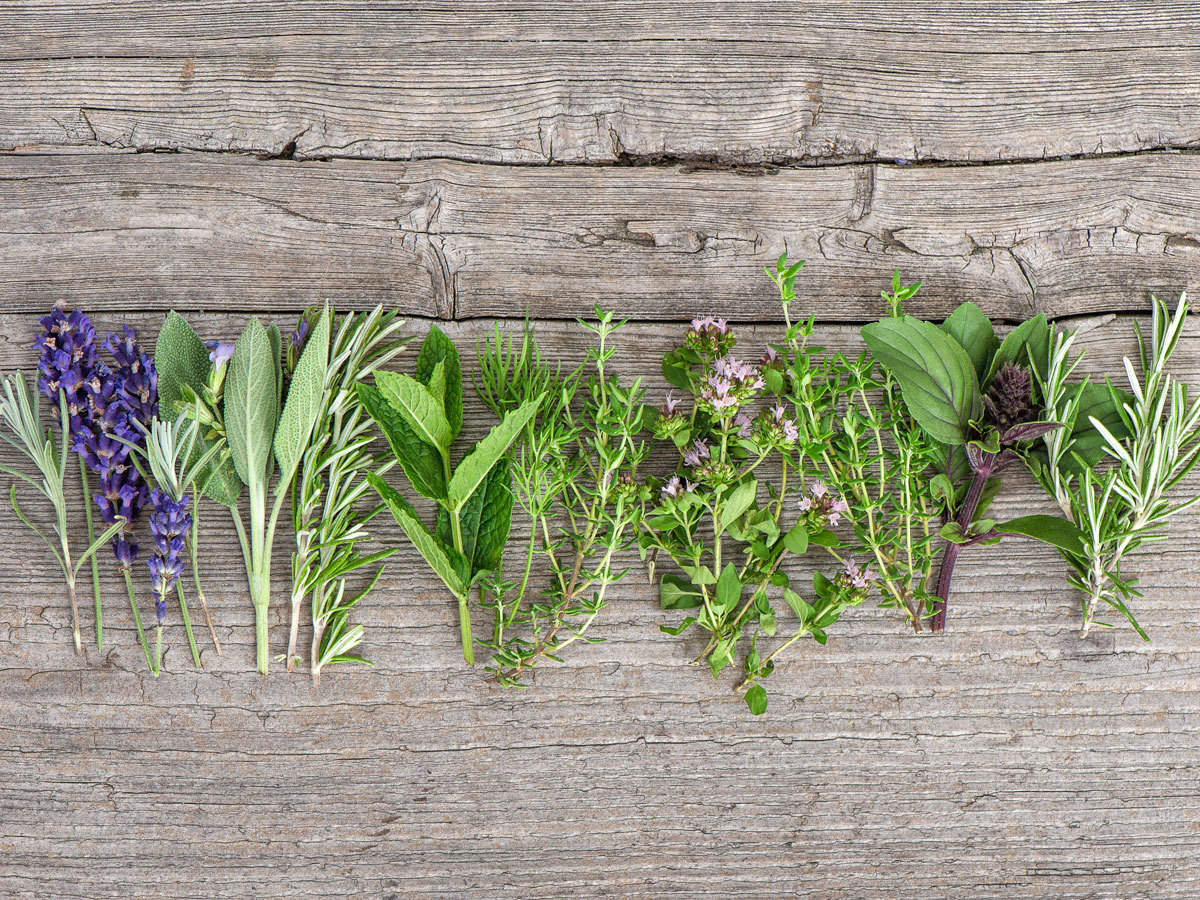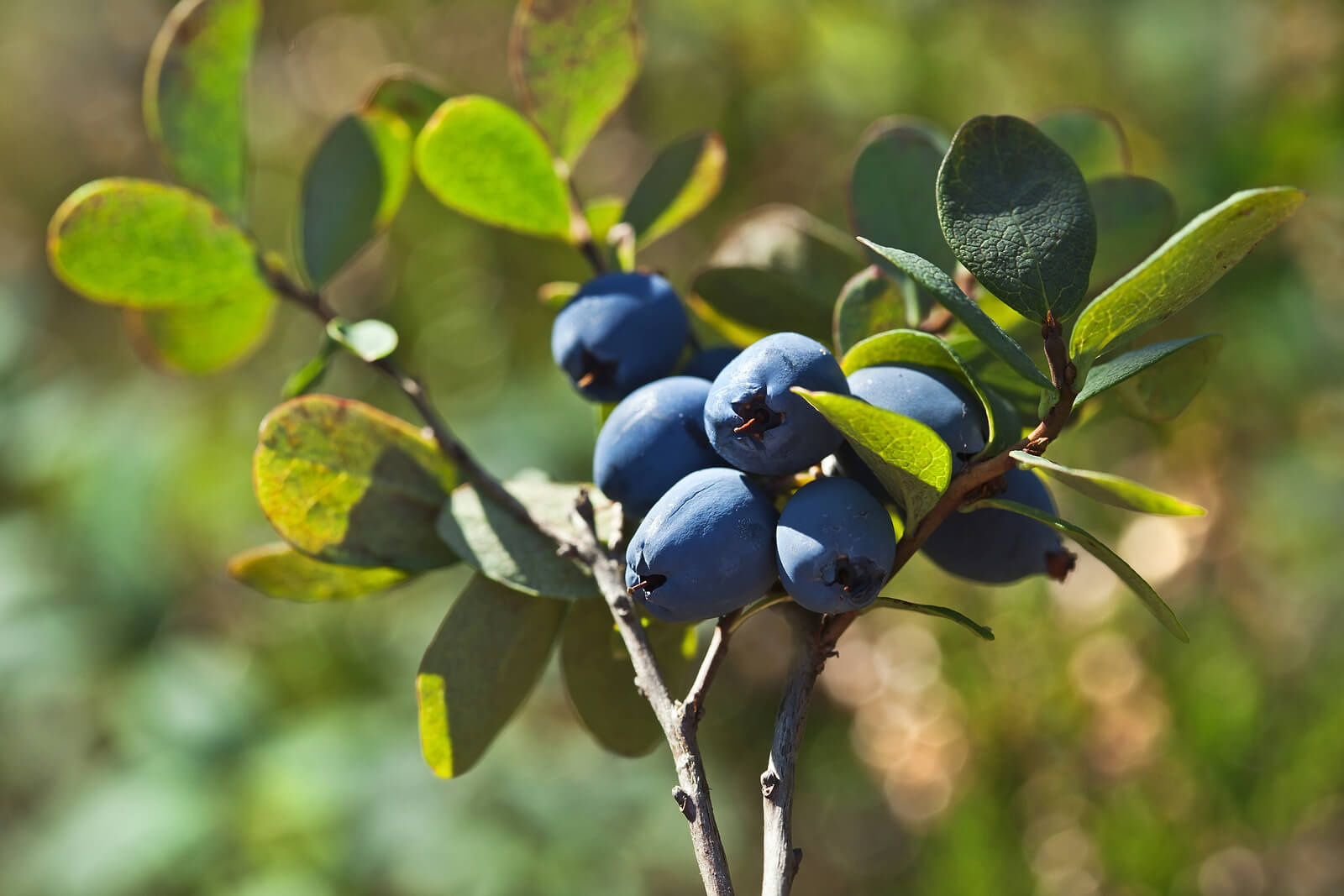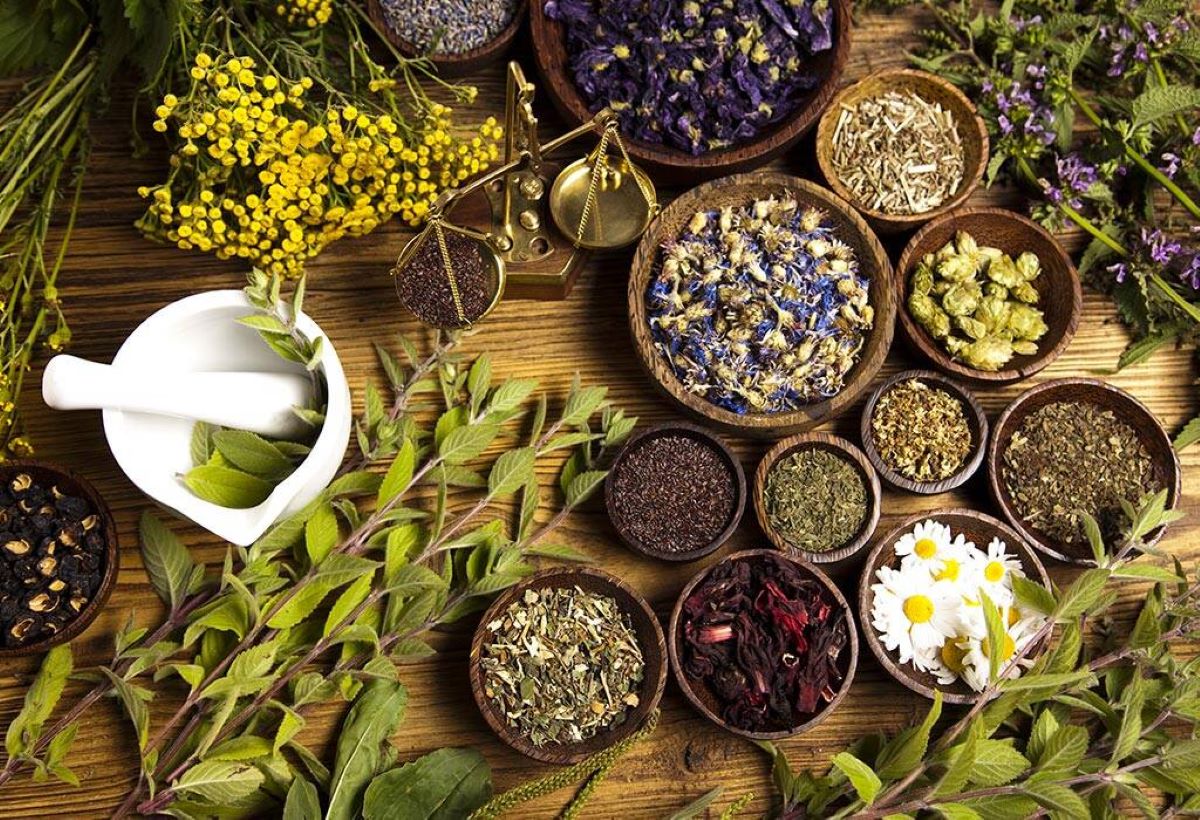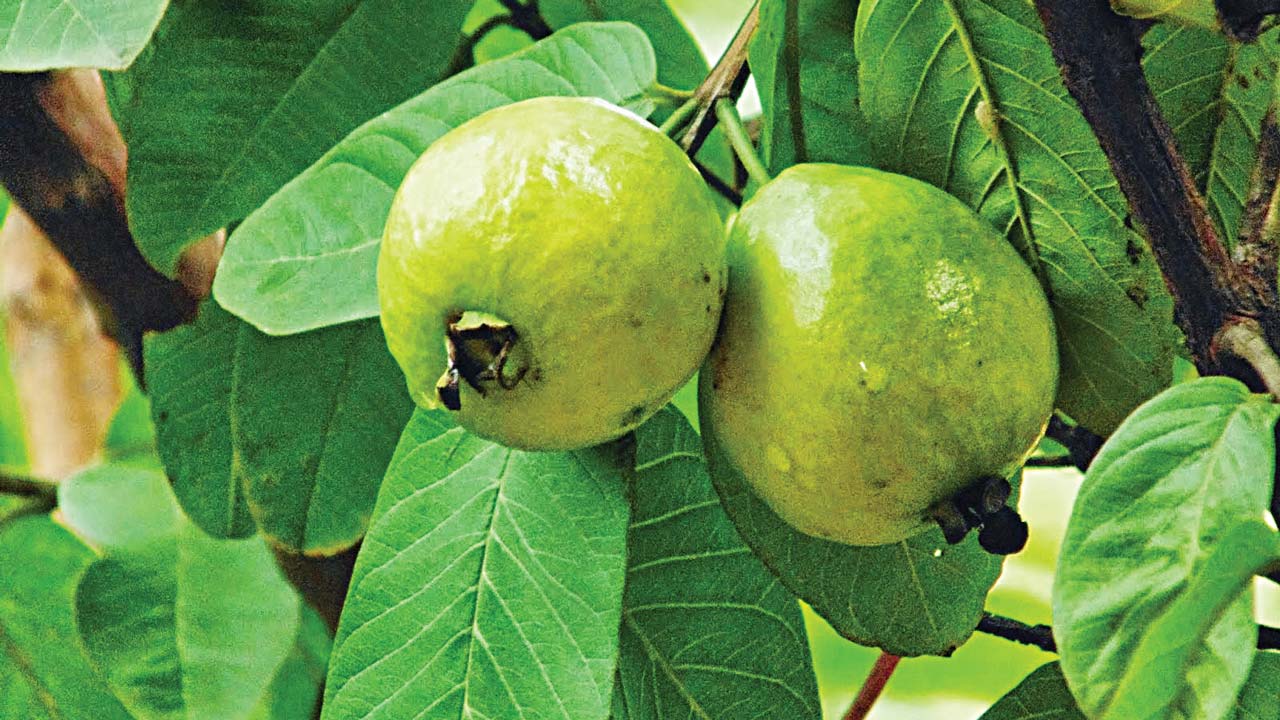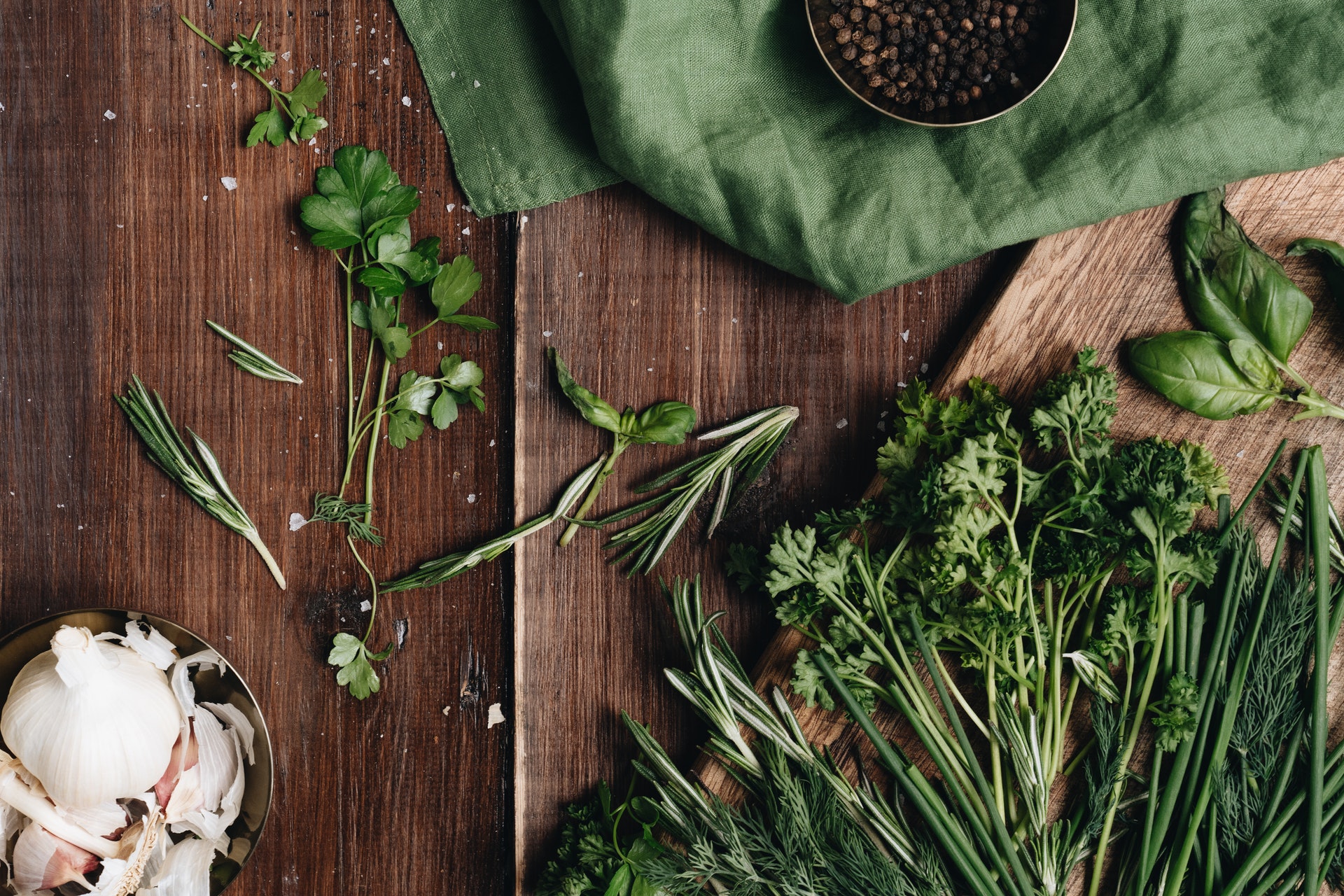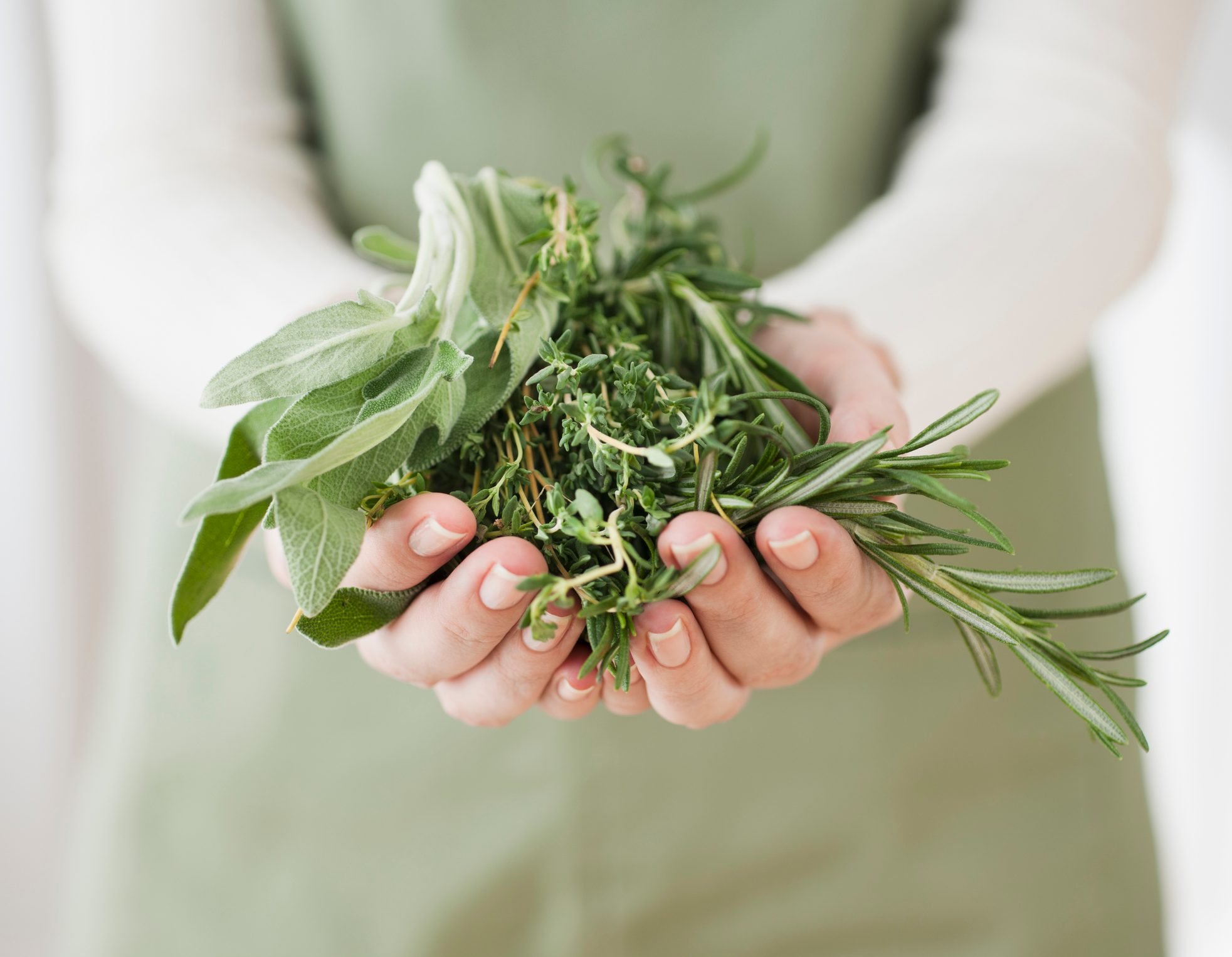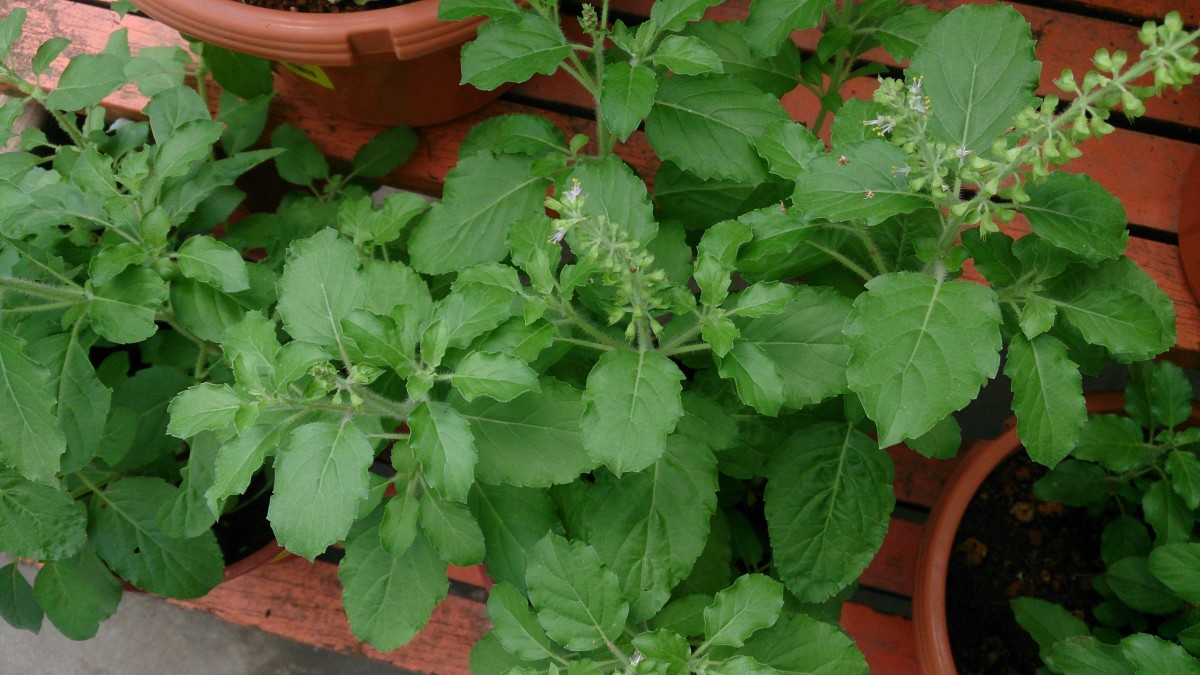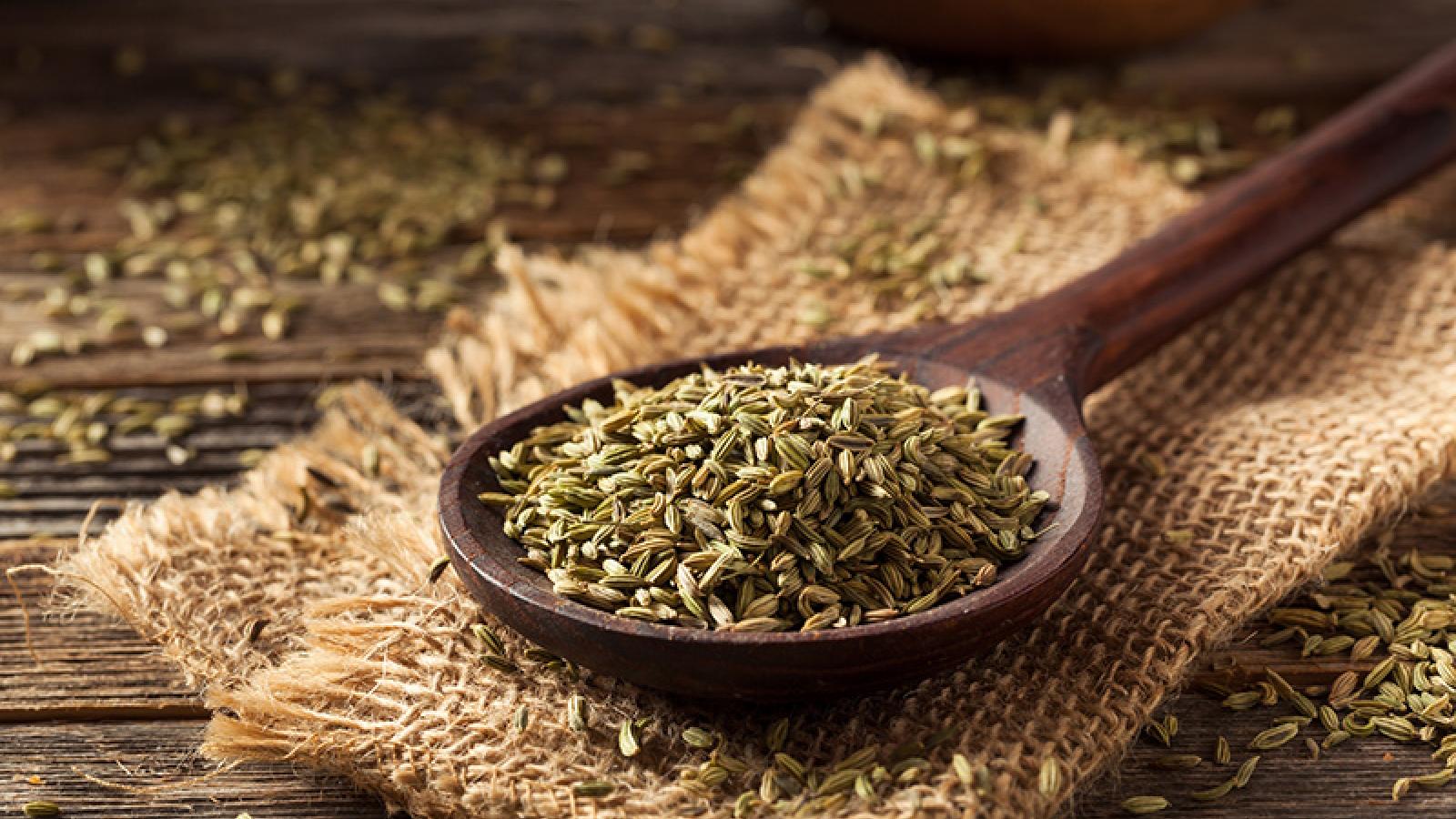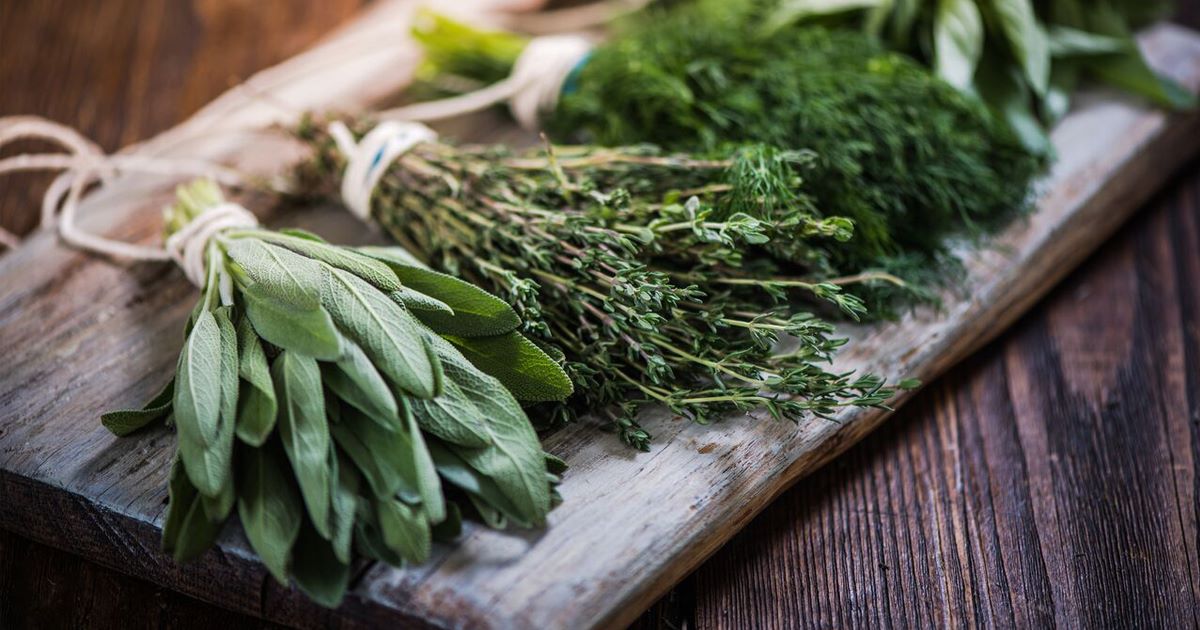Home>Gardening News and Trends>Gardening Trends>What Herbs Are Good For Blood Circulation
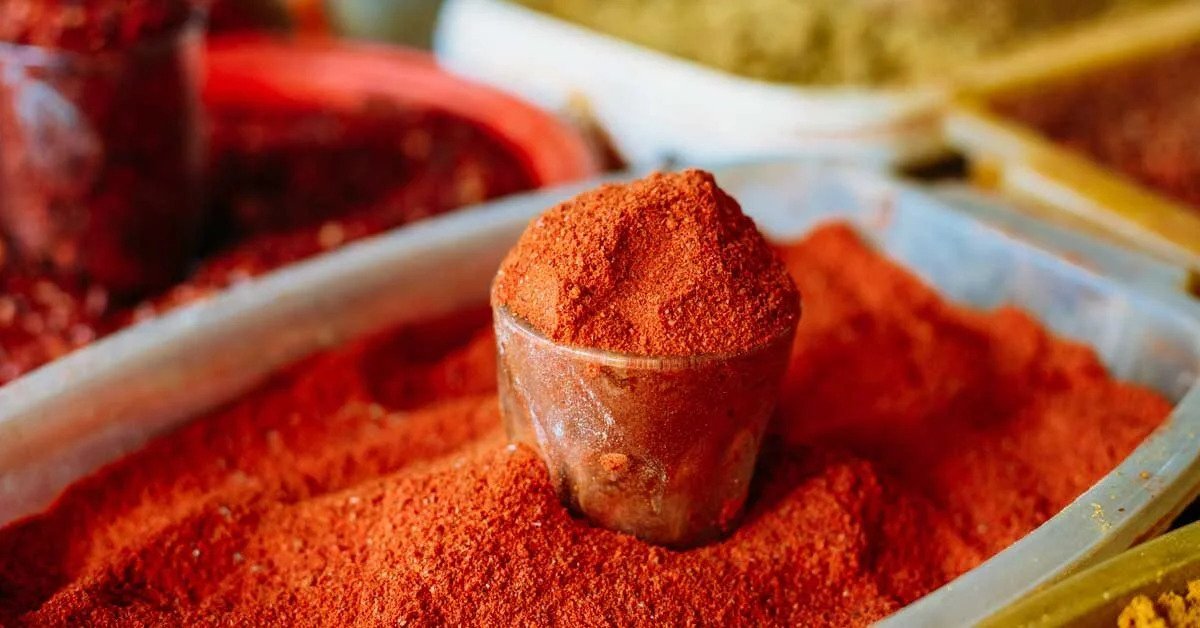

Gardening Trends
What Herbs Are Good For Blood Circulation
Modified: January 22, 2024
Discover the latest gardening trends for improving blood circulation with the use of herbs. Learn which herbs are beneficial and how to cultivate them for optimal health.
(Many of the links in this article redirect to a specific reviewed product. Your purchase of these products through affiliate links helps to generate commission for Chicagolandgardening.com, at no extra cost. Learn more)
Table of Contents
Introduction
Welcome to the world of gardening trends, where green thumbs meet modern lifestyles, and the beauty of nature blends seamlessly with contemporary living spaces. As people become increasingly conscious of their health and well-being, gardening has evolved from a mere hobby to an essential aspect of self-care and sustainability. One of the most popular gardening trends today is growing herbs that offer various health benefits, including improving blood circulation.
Proper blood circulation is vital for overall health as it ensures that oxygen and nutrients are effectively transported throughout the body. A deficiency in blood circulation can lead to various health issues, such as cold hands and feet, muscle cramps, and fatigue. While there are several factors that can affect blood circulation, including lifestyle choices and underlying medical conditions, incorporating certain herbs into your diet and daily routines can help boost blood flow and promote better overall health.
In this article, we will explore some of the herbs that are known for their positive impact on blood circulation. From the fiery flavors of ginger and cayenne pepper to the subtle yet powerful effects of ginkgo biloba and hawthorn, these natural remedies can be easily incorporated into your daily routine to support healthy blood flow.
Ginger
Ginger, with its warm and zesty flavor, is not only a versatile culinary ingredient but also a powerful herb known for its medicinal properties. This root has been used for centuries in traditional medicine to improve circulation and promote overall wellness.
One of the key compounds found in ginger is gingerol, which has been shown to have anti-inflammatory and antioxidant effects. These properties help to relax blood vessels, improve blood flow, and reduce inflammation, ultimately supporting healthy circulation.
There are several ways to incorporate ginger into your routine. Adding freshly grated ginger to hot water and steeping it as a tea is a popular method. You can also include ginger in your cooking, such as stir-fries, soups, or even baking. Additionally, ginger can be taken in supplement form after consulting with a healthcare professional.
It’s important to note that ginger may interact with certain medications, so it’s always best to consult with a healthcare professional before incorporating it into your routine, especially if you have any underlying health conditions.
Whether enjoyed as a soothing tea or added to your favorite dishes, ginger is a flavorful way to support healthy blood circulation and elevate your overall well-being.
Cayenne Pepper
If you enjoy a bit of spice in your life, cayenne pepper may become your new favorite herbal ally for promoting healthy blood circulation. This vibrant red pepper packs a punch not only in flavor but also in its medicinal properties.
Cayenne pepper contains a compound called capsaicin, which gives it its fiery heat. Capsaicin has been shown to have numerous health benefits, including improving blood circulation. It helps to dilate blood vessels and stimulates the release of nitric oxide, a compound that relaxes blood vessels, allowing for better blood flow.
One of the most common ways to use cayenne pepper for promoting blood circulation is by adding it to food. Sprinkling a little cayenne pepper on your meals can not only add some heat but also support healthy blood flow. Alternatively, you can mix a small amount of cayenne pepper powder with warm water and drink it as a tonic.
However, it’s important to note that cayenne pepper may not be suitable for everyone, especially for those with sensitive stomachs or digestive issues. It’s best to start with small amounts and gradually increase as tolerated. As always, consult with a healthcare professional before incorporating cayenne pepper into your routine, particularly if you have any pre-existing medical conditions or take medications.
By adding a dash of cayenne pepper to your meals or enjoying it in a soothing tonic, you can spice up your circulation and give your body a natural boost towards optimal health.
Ginkgo Biloba
Ginkgo Biloba, also known as the maidenhair tree, has been treasured for its medicinal properties for thousands of years. Native to China, this ancient herb is renowned for its ability to support cognitive function and improve blood circulation.
Ginkgo Biloba contains compounds called flavonoids and terpenoids, which act as antioxidants and anti-inflammatory agents. These compounds help to protect blood vessels and promote healthy blood flow, enhancing circulation throughout the body.
Many people choose to take Ginkgo Biloba as a supplement to experience its benefits. It is available in various forms, including capsules, tablets, and extracts. However, it’s important to consult with a healthcare professional before starting any new supplements, particularly if you’re taking any medications or have underlying health conditions.
In addition to its potential benefits for blood circulation, Ginkgo Biloba is also believed to improve memory and cognitive function. It has been used in traditional medicine to support brain health and enhance mental clarity.
While Ginkgo Biloba holds promise in promoting healthy blood circulation, it may not be suitable for everyone. Some individuals may experience side effects such as headaches, stomach upset, or allergic reactions. It’s important to start with a low dosage and gradually increase as tolerated.
By considering Ginkgo Biloba as part of your wellness routine, you can harness the power of this ancient herb to support healthy blood flow and potentially boost cognitive function.
Garlic
Garlic, with its pungent aroma and distinctive flavor, is not only a culinary delight but also a powerhouse herb with numerous health benefits. Widely used in various cuisines around the world, garlic has been recognized for its potential to improve blood circulation.
Garlic contains a compound called allicin, which not only gives it its characteristic odor but also contributes to its medicinal properties. Allicin has been shown to have anti-inflammatory and antioxidant effects, which can help promote healthy blood vessels and improve blood flow.
Incorporating garlic into your diet is relatively simple. You can add minced garlic to your favorite dishes, such as stir-fries, pasta sauces, or roasted vegetables. Consuming garlic in its raw form may provide the highest concentration of allicin, but cooking garlic can also retain some of its beneficial properties.
For those who prefer a more convenient option, garlic supplements are also available. However, it’s important to consult with a healthcare professional before starting any new supplements to ensure they are appropriate for your individual circumstances.
While garlic is generally safe for consumption, some individuals may experience side effects such as bad breath, digestive issues, or allergic reactions. If you have underlying health conditions or are taking medications, it’s important to discuss the use of garlic with your healthcare provider.
By incorporating garlic into your meals or considering garlic supplements, you can not only enhance the flavors of your dishes but also support healthy blood circulation and overall well-being.
Turmeric
Turmeric, a bright yellow spice commonly used in Indian and Asian cuisines, is renowned for its vibrant color and distinctive flavor. Beyond its culinary uses, turmeric also offers a multitude of health benefits, including supporting healthy blood circulation.
The primary active compound in turmeric is curcumin, which has powerful anti-inflammatory and antioxidant properties. These properties help to reduce inflammation in the body and protect blood vessels, ultimately improving blood flow.
There are several ways to incorporate turmeric into your diet. You can add it to curries, rice dishes, roasted vegetables, or even blend it into smoothies. To enhance its absorption, it’s recommended to consume turmeric with black pepper, as it contains a compound called piperine that enhances curcumin absorption in the body.
In addition to its culinary uses, turmeric supplements are also available. However, it’s important to consult with a healthcare professional before starting any new supplements, especially if you have underlying health conditions or are taking medications.
While generally safe for consumption, some individuals may experience gastrointestinal discomfort or allergic reactions to turmeric. It’s essential to use it in moderation and listen to your body’s response.
With its vibrant color and health-promoting properties, turmeric is a fantastic addition to your kitchen arsenal. By incorporating turmeric into your cooking or considering turmeric supplements, you can support healthy blood circulation and enjoy the many benefits this spice has to offer.
Hawthorn
Hawthorn, a small shrub with vibrant berries and delicate flowers, has been used for centuries as a herbal remedy for various health conditions. Among its many benefits, hawthorn is renowned for its positive effects on cardiovascular health and blood circulation.
Hawthorn contains a combination of bioflavonoids, antioxidants, and other compounds that work together to support cardiovascular function. These compounds help dilate blood vessels, improve blood flow, and strengthen the walls of the blood vessels, ultimately promoting healthy circulation.
There are several ways to incorporate hawthorn into your routine. One common method is by brewing hawthorn tea using dried hawthorn berries or leaves. Simply steep a teaspoon of dried hawthorn in hot water for 10-15 minutes and enjoy the soothing and beneficial effects.
Hawthorn supplements, such as capsules or tinctures, are also available. It’s important to consult with a healthcare professional before starting any new supplements, especially if you have underlying health conditions or are taking medications.
While hawthorn is generally considered safe for consumption, some individuals may experience side effects such as dizziness, upset stomach, or headaches. It’s best to start with a low dosage and monitor how your body responds.
By incorporating hawthorn into your daily routine, either through tea or supplements, you can tap into the power of this herbal remedy and support healthy blood circulation for optimal cardiovascular health.
Cinnamon
Cinnamon is a beloved spice known for its warm and comforting flavor. But did you know that cinnamon also has potential benefits for blood circulation? This aromatic spice has been used in traditional medicine for centuries and is now gaining recognition for its health-promoting properties.
One of the key components in cinnamon is cinnamaldehyde, which gives it its distinct taste and aroma. Cinnamaldehyde possesses antioxidant and anti-inflammatory properties that can help improve blood flow and promote healthy circulation.
Adding cinnamon to your diet is easy and delicious. Sprinkle a dash of cinnamon on your morning oatmeal, yogurt, or smoothie. You can also incorporate it into baked goods or warm beverages like tea or coffee. Not only will it enhance the flavor of your dishes, but it may also provide potential benefits for your cardiovascular health.
It’s important to note that while cinnamon is generally safe for consumption, some individuals may be allergic or sensitive to it. Additionally, it may interact with certain medications, so it’s best to consult with a healthcare professional before adding significant amounts of cinnamon to your daily routine.
By embracing the warmth and aroma of cinnamon in your meals and beverages, you can effortlessly support healthy blood circulation and enjoy the delightful taste of this versatile spice.
Gotu Kola
Gotu Kola, also known as Centella asiatica, is an herbaceous plant that has long been used in traditional medicine for its numerous health benefits. Among its many medicinal properties, Gotu Kola is believed to support healthy blood circulation.
Gotu Kola contains compounds known as triterpenoids, which have been shown to strengthen blood vessels and improve circulation. These compounds help to enhance the flow of blood and oxygen to various parts of the body, promoting overall cardiovascular health.
One popular way to enjoy the benefits of Gotu Kola is by brewing it as a tea. Simply steep a teaspoon of dried Gotu Kola leaves in hot water for 5-10 minutes, then strain and enjoy. You can also find Gotu Kola supplements in the form of capsules or tinctures.
As with any herbal supplement, it’s important to consult with a healthcare professional before incorporating Gotu Kola into your routine, especially if you have underlying health conditions or are taking medications.
While Gotu Kola is generally considered safe for consumption, some individuals may experience side effects such as mild stomach upset or skin irritation. It’s best to start with a low dosage and monitor how your body responds.
By incorporating Gotu Kola into your wellness routine, either through tea or supplements, you can tap into the potential benefits of this remarkable herb and support healthy blood circulation, contributing to your overall well-being.
Horse Chestnut
Horse Chestnut, scientifically known as Aesculus hippocastanum, is a tree native to Europe and has a long history of traditional use in herbal medicine. The seeds of the Horse Chestnut tree are particularly valued for their potential benefits in supporting healthy blood circulation.
Horse Chestnut seeds contain a compound called Aescin, which is known for its anti-inflammatory and venotonic properties. Aescin helps to strengthen the walls of veins and reduce inflammation, promoting better blood flow and overall circulatory health.
One of the most common ways to use Horse Chestnut is by taking it in supplement form. Horse Chestnut extract capsules or tablets can be found in health food stores or online. It’s important to consult with a healthcare professional before starting any new supplements, especially if you have existing health conditions or are taking medications.
Additionally, external applications of Horse Chestnut gel or cream can be used topically to promote healthy circulation in specific areas, such as the legs and feet. These topical preparations are believed to help alleviate symptoms associated with poor venous circulation, such as swelling and discomfort.
While generally considered safe, Horse Chestnut may cause side effects in some individuals, such as nausea, stomach upset, or itching. It’s important to follow recommended dosages and discontinue use if any adverse reactions occur.
By considering Horse Chestnut as part of your wellness routine, either through supplements or topical applications, you can tap into its potential benefits to support healthy blood circulation, especially in the lower extremities.
Conclusion
When it comes to promoting healthy blood circulation, nature has provided us with a variety of herbs that offer potential benefits. From the warming properties of ginger and cayenne pepper to the antioxidant-rich qualities of Ginkgo Biloba and turmeric, these herbs can be easily incorporated into our daily routines to support overall cardiovascular health.
While individual herbs may have specific mechanisms of action, they all share the common goal of improving blood flow and enhancing circulation throughout the body. Whether used in culinary creations, enjoyed as teas or supplements, or applied topically, these herbs offer natural alternatives for those seeking to optimize their circulatory well-being.
While herbs can be a valuable addition to our health routines, it’s essential to remember that they should not replace medical advice or treatments. It’s always recommended to consult with a healthcare professional before starting any new herbal regimen, particularly if you have underlying health conditions or are taking medications.
By exploring the world of herbal remedies for blood circulation, we can tap into the potential benefits of these natural treasures and embark on a journey towards improved cardiovascular health. So why not spice up your life with ginger and cayenne pepper, embrace the vibrant flavors of turmeric and cinnamon, or discover the ancient traditions of Ginkgo Biloba and Gotu Kola? Unlock the power of nature and embark on a path to vibrant health and vitality.
